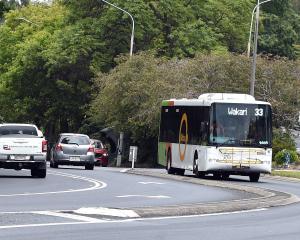The New Zealand Aged Care Association is trying to put sector funding on the political agenda in its election campaign launched today.
The association is again highlighting caregivers' pay - which averages $15.31 an hour in community-based providers - in a $250,000 campaign funded by the lobby group's members.
However, a health board chief has appealed for an end to ''pointing fingers'' and more co-operation between the sector and the Government.
Aged Care Association chief executive Martin Taylor said the residential care sector could not afford to lift wages with the present level of government funding.
''It's too tight and as the majority of operational costs in care are wages, then it is caregivers who suffer.''
Caregivers gave older people respect, dignity and a sense of meaning.
''It makes it very difficult for caregivers to keep giving in this way when they are paid at a level that challenges their own dignity, and that's really the bottom line,'' he said.
The association had written to political parties asking what each intended to do in aged care, and would publish the responses.
The association also wants a review of palliative care funding, extra funding for training for computer assessment tool InterRai, and a promise new government initiatives or requirements will be funded.
Last Monday, a group of Otago aged care providers published a protest letter to the Government and Southern District Health Board in the Otago Daily Times saying they had signed the 2014-15 contract with a 1% funding rise ''under duress'', while they faced a ''perfect storm'' of cost pressures.
Lead district heath board chief executive for health of older people, Chris Fleming, of Nelson, told the Otago Daily Times the parties must stop ''pointing fingers'' at each other and find ways to reduce costs through tweaking the system.
Mr Fleming, who is also chief executive of Nelson Marlborough DHB, said costs could be reduced through better links between residential facilities and hospital/medical services.
''Aged residential care, I don't think it's well integrated in terms of integration with primary care [and] secondary care to reduce costs,'' he said.
Mr Fleming was ''sick of arguing''about the same things every year.
''What I want to try to do is stop all this pointing fingers at each other and say: 'How do we get into a room to really tackle some of these?' ''
The 1% increase for aged care this year was higher than the annual funding increase received by district health boards, he said.
''Is it enough? No, inevitably it's going to continue to put the sector under challenge,'' Mr Fleming said.
Most people wanted to see caregivers' wages rise, but it was a complex issue requiring a debate about what the work was worth.
''Somehow, as a country, we have to figure out where our priorities lie and how we fund it.''












